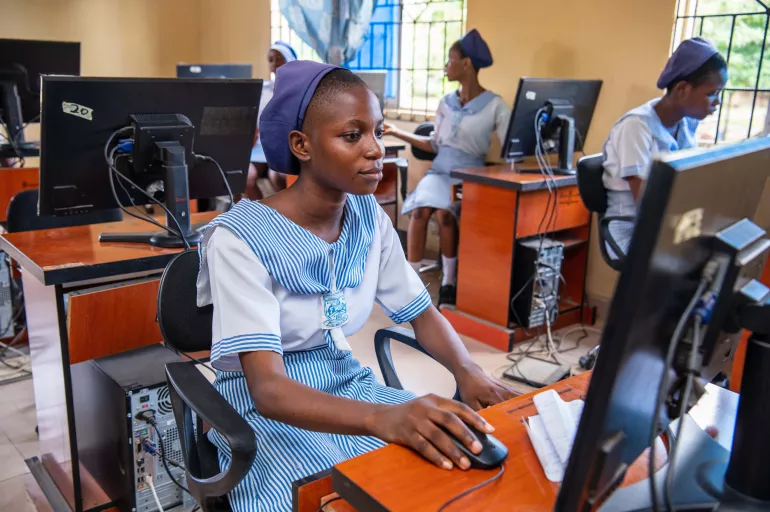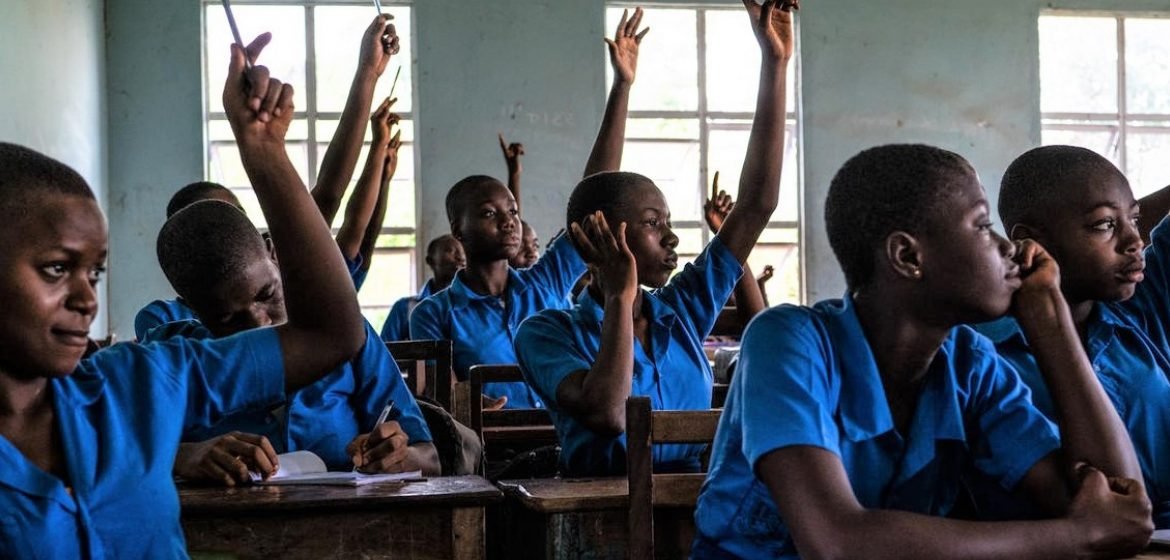The Nigerian government has declared that only the English language will now be the country’s mother tongue for teaching in schools. Multiple languages will no longer be used for learning assessment.
Minister of Education, Dr. Maruf Olatunji Alausa, stated this at the National Education Group (NEG) meeting held in Abuja, Nigeria.
The Buhari Administration had, in 2022, approved a new National Language Policy. This policy makes the local mother tongue that is dominant in an area the compulsory medium of instruction. This applies in the first six years of basic education.
The Minister said the use of multiple languages for teaching in schools across the country is not practicable as it destroys educational foundations. The new Policy is being standardised across the country in a new direction.
Development Partners Urged to Take Note
He urged development partners in the country to respect the government’s decision. They should stop pushing for multiple mother tongues in the country’s education system.
“Let me tell everybody again, and our development partners. A new position in the Ministry of Education is that we are not going to use multiple languages as a learning assessment. I want all our development partners to respect us and get that.
“We’re eliminating multiple mother tongues. Our mother tongue is now English. That’s the language of our instructions in schools going forward,” he said
“Any attempt for us to be pushed on this by our development partners will be met fiercely because we know what we need. This use of mother tongue is not practicable in our country. It’s not. It is a disaster. We’ve seen the damage that is being done. We’re destroying the lives of millions of people, especially in the northern part of the country,” he said.
According to him, “Nigeria has over 625 languages, and living together in different parts of the country, as such, it will be difficult for teachers to be recruited based on the concentration of a particular language in a place to teach in isolation of others.
“Let me give you an example. You go to Lagos today. You go to Ajegunle. What’s the mother tongue there? That’s where you have the population of people from the Southeast. Over 90% of their teachers will speak Igbo?. So it’s not practicable.
“You go to Shomolu. That’s where you have the population of people from the Southwest, then there they will be teaching in Yoruba?. Where are the teachers for all these languages across the country? We don’t even have the teachers,” he said.
Failure of Mother Tongue Policy
He explained that the mother tongue policy, after many years, has only partially succeeded in the Northwestern part of the country, but not implemented in other parts.
“Go to the north central, they have not adopted any mother tongue. Go to the north east and south east, they are not teaching in any mother tongue. This policy has not succeeded,” he said
He acknowledged that there are evidences of marginal benefit when students are trained in their mother tongue in the earliest part of their school. This is noted especially from primary one to three, yet the policy is not feasible.
Retrospectively, the minister said 50 years ago, people went to school and studied with English language as the mother tongue, and education was complete.
Basic Education Appraisal Forthcoming
He informed them that the learning assessment at the basic level, which has not been carried out since 2022, will now be carried out every two years, beginning from 2026
We’re going to do it from June 2026 and then 2028. For better coordination of learning assessment, National Assessment of Learning Achievement in Basic Education (NALABE) and the National Monitoring of Learning Achievement (NMLA) are being merged. The new name is National Learning Assessment (NLA),” said the minister.
He highlighted that appraisals have indicated that the distribution of computer Tablets and Smart Boards to schools is enhancing learning in schools. “efforts are ongoing with service providers for them to begin to use internet services with Zero data.”
He pointed out that enumeration is also ongoing to harmonize the Almajiri and out-of-school data. This will help get the real figure, so that the country will not be hiding under estimated figures from international organizations.
On the ongoing National School Feeding programme, the Director in charge of Basic Education of the Ministry, Dr. Olatunji Davis, said the programme is going on without hitches. He noted “funds for the year have been provided and being efficiently utilized.”
The UNICEF representative at the event called for continuous monitoring and evaluation of projects. They promised to assist always in the process. Meanwhile, the Global Partnership for Education, GPE, sued for improved domestic financing of projects and programmes. They added that supporting national prosperity is the main agenda of the group in Nigeria.
The meeting brought together key education stakeholders to deliberate on policies and strategies aimed at strengthening the delivery and performance of Nigeria’s education sector.
(VON)

























